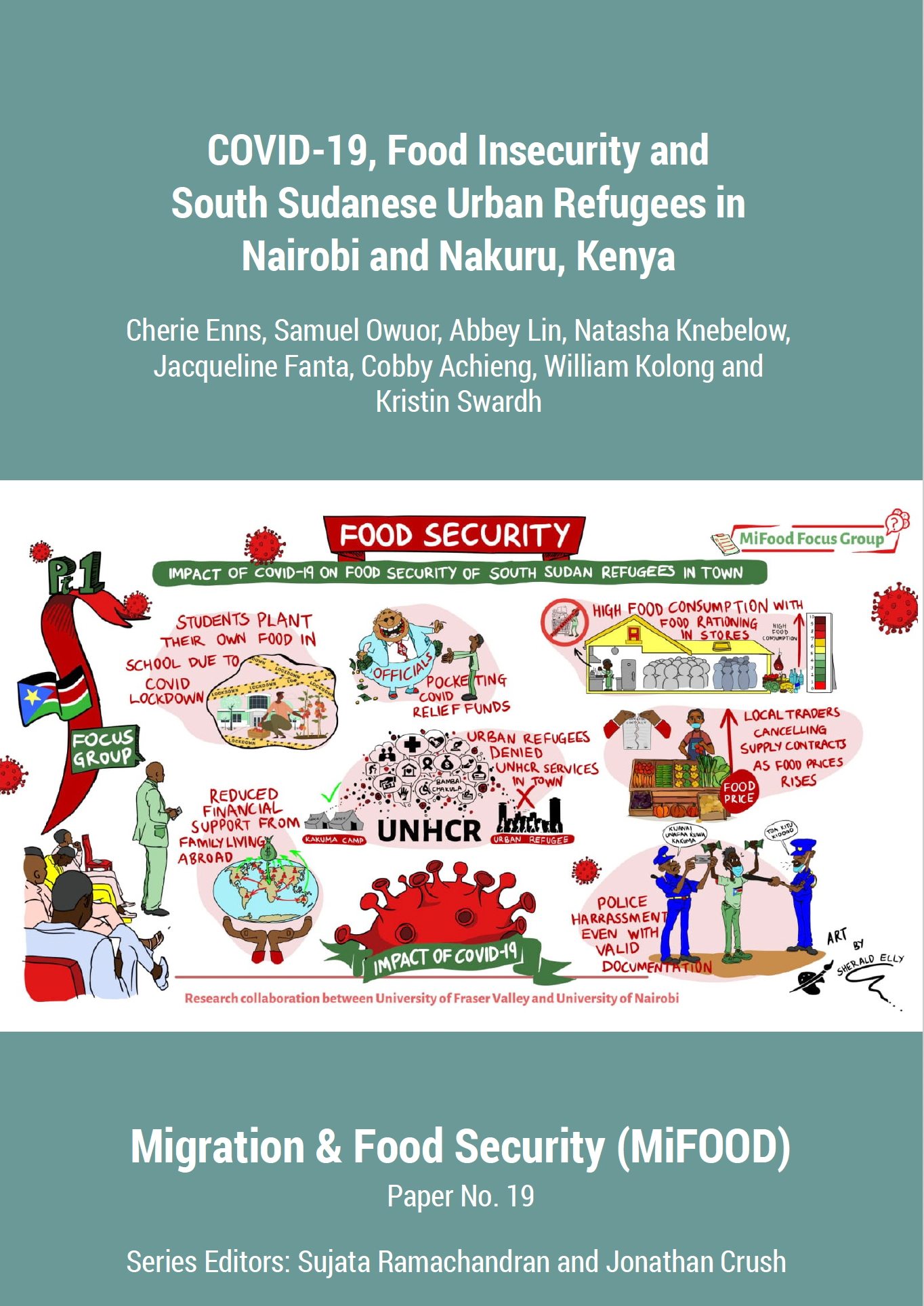The challenges and struggles of refugees are well documented, mainly within refugee camps. However, more needs to be documented and understood about the exertions and hardships of urban refugees, including the experiences of young South Sudanese urban refugees living in Kenya. Although Kenya is one of the major countries that hosts refugees from South Sudan, it has adopted disparate policies for refugees in camp settings and those outside the camps. This divergent approach placed urban South Sudanese refugee youth in highly precarious circumstances during the COVID-19 pandemic. Rampant food insecurity for refugee youth was one of the key negative consequences. Applying a mixed-methods approach, including analysis of transcripts of focus group sessions and a review of food diaries, the results weave a narrative that provides insights to government, policymakers, community leaders, and donors responding to youth urban refugees to design more spatially and socially inclusive urban spaces.

